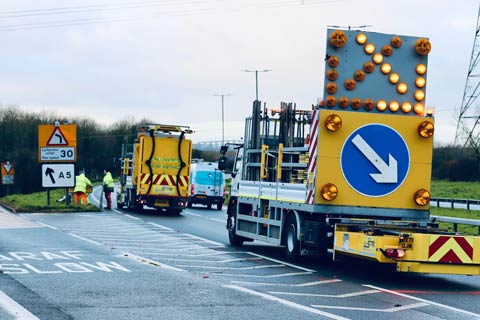13th August 2020 | Ian Anfield
It seems a world away now but just over four years ago in June 2016, 52 per cent of us voted to leave the EU. After a number of false starts, two general elections, a Boris landslide and a global pandemic - we leave the EU proper when the transition period ends on December 31.
That’s right, after four long years of backbiting and political wrangling we will finally get a sense of what Brexit really means for our country, our businesses and our personal finances.
My job as MD of Hudson is to assess how the changes which come into force in January, now just four months away, will impact the industry and more specifically Hudson and what Hudson does for its clients and operatives.
Post-Brexit immigration and access to EU labour from January 1 2021
While there are much-discussed issues around access to markets, material tariffs, manufacturing and plant costs and delays at ports getting materials through, access to EU labour is the biggest concern facing many of the 2,500 firms using Hudson to engage labour on a weekly basis.
We estimate that as many as 25 per cent of the 72,000 operatives we currently engage are from the EU. They are not British passport holders yet they have UK addresses, bank accounts, national insurance numbers and CIS registration.
Thankfully we do not automatically lose these people in January next year: they have the right to stay and work in the UK, but they must register under the EU Settlement Scheme before June 30 2021.
Under the EU settlement scheme, any EU national already working in the UK must apply for settled or pre-settled status before June 30 2021. Those who have worked in the UK for five years or more will be granted settled status while those who have been here for less time will be granted pre-settled status until they have remained for five years.
The EU operatives currently engaged by Hudson are allowed to continue as they are.
The problem comes later down the line because the scheme does not cover anyone seeking to come to work in the UK for the first time after December 31 2020. We are concerned the pool of available EU labour will dry up unless the government creates a new route for entry.
Professionals such as scientists, doctors or business people from anywhere in the world can choose from a number of routes if they wish to live and work in the UK. Unfortunately, these routes do not cover highly skilled tradespeople who would require full employment and considerable upfront investment and legal responsibilities from potential employers. For most construction companies, this will be unviable.
The industry is lobbying through trade federations and the Construction Leadership Council for a more usable scheme, but beyond mention of a sponsored temporary employee route, which may be introduced in 2022 and cover construction, government does not appear to grasp the benefit of a self-employed option.
To keep clients informed, we are taking advice from immigration lawyers, watching the Brexit negotiations and engaging with government via the National Federation of Builders, so watch this space…
Want to talk to us?
If you would like to get in touch, call us or fill in your details and we will call you back.
Call 01262 401040
Request a callback
To speak to one of our team, call us on 01262 401040
Or request a callback and one of our team will be in touch at a time that suits you.
Request a callback
Please select your role and fill in your details and we'll get you the right person to call you:




